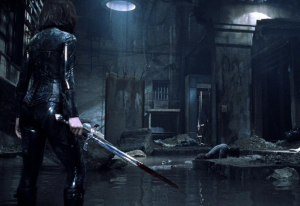Dungeons & Dragons has released a statement responding to criticism on the game’s lore regarding certain intelligent races and its use of harmful stereotypes and insensitive language. The company’s lengthy statement comes in the wake of ongoing criticism about various aspects of the game, especially in the lore surrounding orcs, drow, and the Vistani. In the statement, Dungeons & Dragons noted that one of the explicit design goals of its current Fifth Editon ruleset was “to depict humanity in all its beautiful diversity by depicting characters who represent an array of ethnicities, gender identities, sexual orientations, and beliefs.” However, the statement noted that several recent publications used harmful descriptions to describe certain cultural groups that were reminiscent of how real-world ethnic groups were and continue to be denigrated.
Videos by ComicBook.com
The design team noted that they needed to do a “better job” in addressing these issues and provided examples as to what the design team were doing to improve. One of the biggest changes is that an upcoming book will provide players with an alternative to racial ability score bonuses, in order to emphasize that characters are individuals with capabilities all their own. Additionally, the Dungeons & Dragons team has brought in a Romani consultant to assist in presenting the Vistani, a group of people modelled after Romani traditions, in a fashion that doesn’t rely on reductive tropes. Notably, these changes will be reflected in the already published adventure Curse of Strahd and two upcoming products.
Future product will also seek to directly address how the orc and drow are presented in some campaign setting lore. While both Eberron: Rising From the Last War and Explorer’s Guide to Wildemount presented the orc and drow as individuals that aren’t predisposed to any one “alignment,” and future books will continue to stress that these groups are “as free as humans to decide who they are and what they do.”
Dungeons & Dragons also noted that they will continue to seek new, diverse talent for their pool of freelance writers and contributors, and that they’ll invest even more in this approach in the future.
You can read Dungeons & Dragons‘ full statement on their website.








